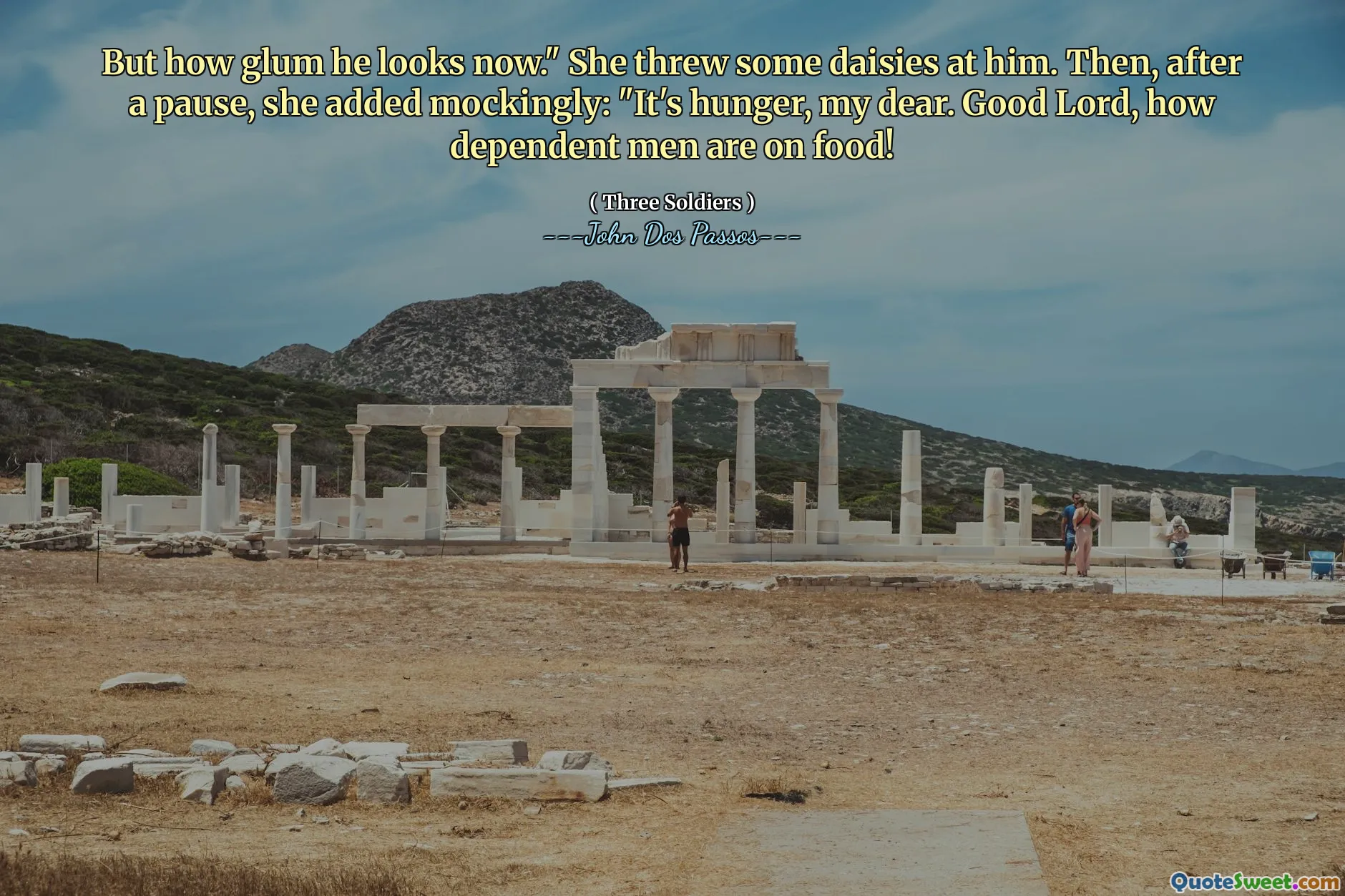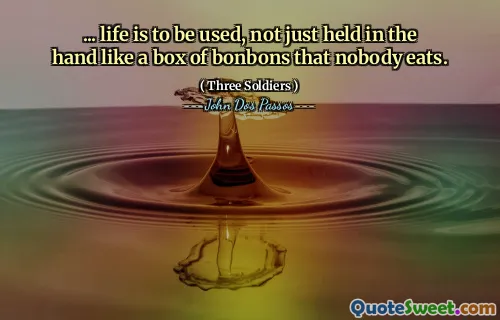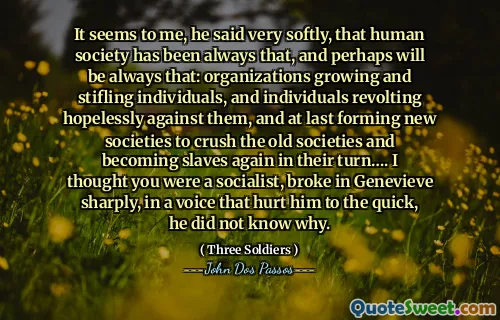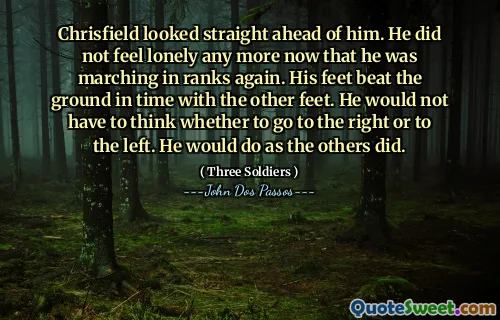
But how glum he looks now." She threw some daisies at him. Then, after a pause, she added mockingly: "It's hunger, my dear. Good Lord, how dependent men are on food!
In John Dos Passos' "Three Soldiers," a character observes another who appears dismal and unwell. This observation highlights the contrast between the man's mood and the more playful demeanor of the speaker, who attempts to uplift the situation by throwing daisies at him. The speaker's actions suggest a sense of care mixed with humor, indicating the complexities of human interactions in difficult times.
Following her playful gesture, the speaker notes the man's dependence on food, implying that physical needs can heavily influence emotional states. Her mocking tone underscores a certain awareness of the struggles faced by men, particularly in times of hardship. This moment captures the interplay between lightheartedness and the seriousness of survival, emphasizing how basic necessities like food can dictate one's well-being.









